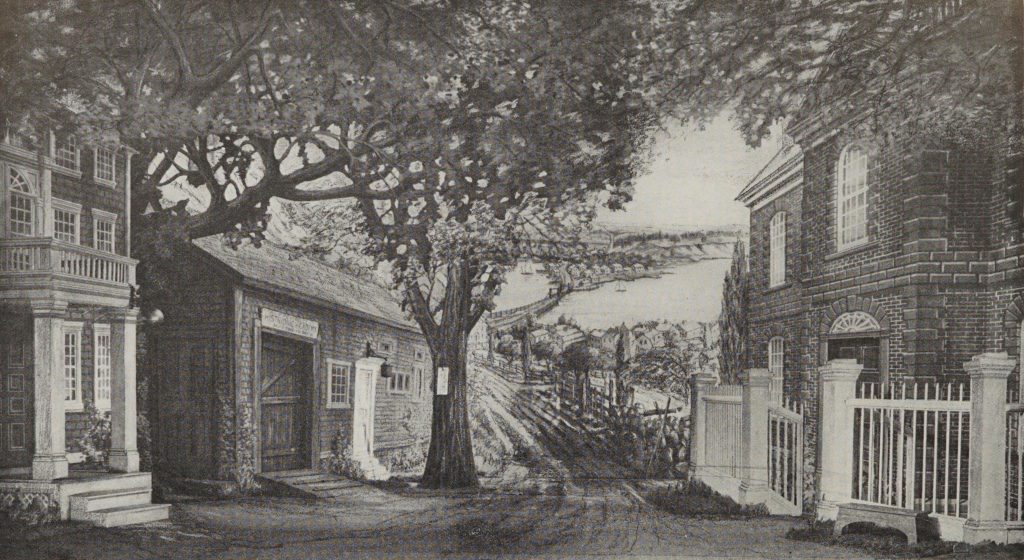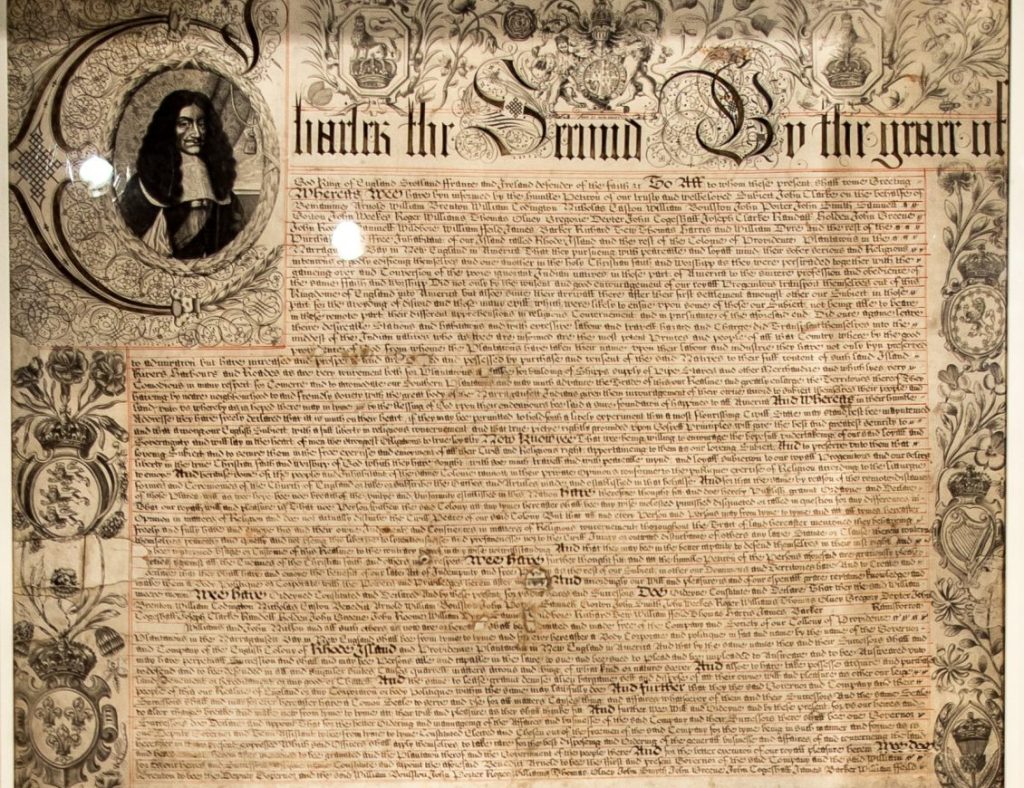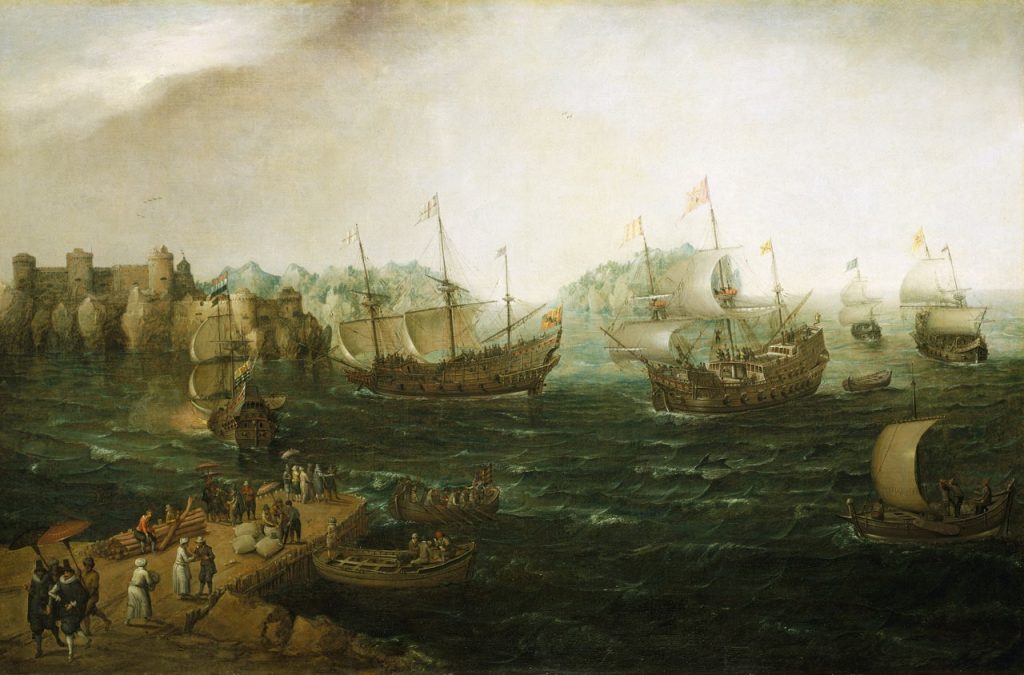Contents
Contents
The Colony of Rhode Island, also known as the Colony of Rhode Island and Providence Plantations, was founded by English settlers in America in 1636.
History
One of the first permanent British settlements in America was the Massachusetts Bay Colony, established in 1628 by English Puritans – a branch of the Protestant Christian movement.
The Puritans held hardline religious beliefs, especially around the authority of scripture and devotion to God. In Massachusetts, the church and government were almost one and the same, and society was governed based on religious law.
However, some Puritan settlers believed in the separation of church and state.
Roger Williams was a Puritan minister who was exiled from Massachusetts Bay in 1636 for religious dissent. He travelled southwest, and established the first settlements that would become the Colony of Rhode Island, joined by a group of fellow settlers who had also been banished.

Williams settled in Providence, trading access to English-made goods such as blankets and knives in exchange for land from the Narragansett Indians. He believed in negotiating land purchases from the native population, rather than seizing it by force.
Soon, Warwick, Portsmouth, and Newport were also settled by the colonists.
After the Wampanoag tribe attacked Massachusetts Bay in June 1675, Rhode Islanders grew distrustful of the local Narragansetts, even though they were a neutral party, and uninvolved in the fighting.
On December 19, 1675, the Narragansetts were massacred by colonists at the Great Swamp Fight near Kingstown, Rhode Island. After this occurred, colonial expansion in Rhode Island accelerated.
Religion
The Colony of Rhode Island was founded on the basis of religious freedom and democracy.
Settlers (land-owning white men) voted on proposals put forth by the colonial government, rather than having laws defined by the church, religious principles, or magistrates appointed from outside the colony.
In 1663, Rhode Island received a Royal Charter from King Charles II, formally uniting its settlements into a recognized English colony, and enshrining its core values into law.
The King was a Catholic sympathizer, whose father was executed by Puritans during the English Civil War, meaning he was sympathetic to colonists seeking to escape hardline Protestant rule.
As a result, the Rhode Island Charter was extremely liberal, granting the colony wide-ranging powers to govern itself.
The Charter was so liberal that the colony kept it as the state constitution until 1843 – long after independence from Great Britain.
The Colony of Rhode Island acted as a refuge for religious dissenters from across the Thirteen Colonies, especially New England. Quakers and Jews for example established a strong presence in the region during the late 1600s, and the first Baptist church in America was established in Providence in 1639.
Economy
The economy of Rhode Island was dominated by maritime trade.
Newport was a major Atlantic port, and Providence and Bristol also became important shipping hubs. These ports supported a range of industries such as shipbuilding and fishing, and also facilitated the export of locally produced goods such as rum and salt.
The Rhode Island mainland also had a range of small-scale farms that grew crops such as wheat and maize, and also raised livestock.
The soil in the region was suitable for farming in certain areas, making it easier to grow crops than in many other parts of New England, but the soil was not as fertile as in the Middle Colonies.
Slave labor was vital to the Rhode Island economy. Enslaved Africans worked in households, on farms, and at wharves, especially in Newport and Bristol.
The large Quaker population in Rhode Island did argue for the abolition of slavery, but this movement only began to gain traction in 1772. Thanks to their efforts, and the power Quakers held in the Rhode Island government, the colony was one of the first to ban the importation of slaves in 1774, before an emancipation act was passed in 1784.
Facts
- The population of Rhode Island was estimated at 300 in 1640, 16,950 in 1730, and 58,190 in 1770.
- On May 4, 1776, Rhode Island became the first colony to formally renounce its allegiance to King George III, preceding the Declaration of Independence by two months.
- Rhode Island was the only one of the New England colonies never to have an official state church.
- Rhode Island is home to the oldest synagogue in the United States – Touro Synagogue in Newport, established in 1763.
- In 1652, Rhode Island passed what’s often cited as North America’s first anti-slavery law. However, the law was not enforced, meaning effectively nothing was done to combat slavery in the colony until the “Act for Prohibiting the Importation of Negroes” was passed in 1774.



